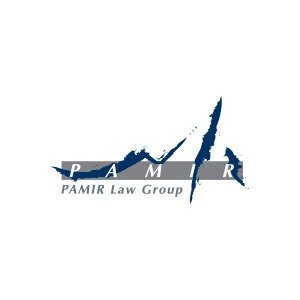Best Acquisition / Leveraged Finance Lawyers in Taiwan
Share your needs with us, get contacted by law firms.
Free. Takes 2 min.
Or refine your search by selecting a city:
List of the best lawyers in Taiwan
About Acquisition / Leveraged Finance Law in Taiwan
Acquisition and leveraged finance law in Taiwan focuses on the legal structures and requirements surrounding companies that seek to purchase other businesses or assets, often using a significant amount of borrowed funds. These transactions may involve mergers, acquisitions, management buyouts, or the financing of large-scale purchases, typically with money obtained from banks or other financial institutions. Taiwan’s legal landscape for acquisition and leveraged finance is influenced by its robust regulatory environment, sophisticated financial sector, and comprehensive company laws, ensuring that all parties are protected and that transactions are conducted transparently.
Why You May Need a Lawyer
Seeking legal advice is crucial in acquisition or leveraged finance transactions for several reasons. Lawyers help identify potential legal risks, ensure regulatory compliance, conduct due diligence, draft and review complex agreements, and structure transactions in a way that meets all legal and financial objectives. Common situations requiring legal help include negotiating the terms of a credit facility, reviewing loan documentation, conducting due diligence on the target company, ensuring compliance with local regulations and approvals, establishing security interests, and resolving any disputes that may arise during or after the transaction. The experience and insight of a local lawyer can help protect your interests from negotiation through to completion and beyond.
Local Laws Overview
The legal framework for acquisition and leveraged finance in Taiwan is primarily governed by the Company Act, the Banking Act, and the Financial Holding Company Act, among others. Regulatory authorities such as the Financial Supervisory Commission (FSC) oversee financial activities and compliance. Key aspects include: - Restrictions on borrowing and lending by companies, including debt-to-equity ratio limits - Strict requirements for foreign investment and cross-border transactions - Approval processes for deals involving listed companies or certain regulated industries - Rules governing the creation and perfection of security interests over assets - Enforcement of creditor rights and dispute resolution mechanisms - Comprehensive anti-money laundering and anti-corruption laws Taiwan also recognizes syndicated lending and security agent structures, but documentation must comply with local requirements, and certain in-country filings or approvals may be needed.
Frequently Asked Questions
What is leveraged finance?
Leveraged finance refers to the use of borrowed funds to acquire a company or asset, with the expectation that the acquired entity’s cash flows will service the debt.
Is acquisition finance common in Taiwan?
Yes, acquisition finance is commonly used, especially among larger corporations and private equity firms involved in mergers and acquisitions.
Can foreign investors participate in leveraged buyouts in Taiwan?
Foreign investors can participate, but they must comply with Taiwanese foreign investment laws, and certain sectors may require additional approvals or have ownership restrictions.
What types of security can be provided under Taiwanese law?
Typical security interests include mortgages over real property, pledges over shares, account receivables, inventory, and movable assets. The creation and perfection of these securities must follow local legal procedures.
What due diligence is necessary in acquisition finance deals?
Thorough legal, financial, and operational due diligence is crucial to identify risks, verify the target’s legal status, liabilities, assets, contracts, and licenses, and to ensure compliance with all applicable laws.
Are there restrictions on the amount a company can borrow?
Yes, there are regulatory limits, particularly relating to debt-to-equity ratios for certain companies, and banks are subject to prudential requirements when lending.
What regulatory approvals might be required?
Depending on the industry, size, and nature of the transaction, approvals may be needed from the Financial Supervisory Commission, the Investment Commission under the Ministry of Economic Affairs, or other sector-specific regulators.
How are disputes related to acquisition finance resolved in Taiwan?
Disputes can be resolved through negotiation, mediation, arbitration, or litigation in Taiwanese courts. The choice of forum is often specified in the relevant agreements.
Is cross-border financing permitted?
Cross-border financing is permitted, but foreign exchange controls and certain filing requirements may apply, particularly for repatriating profits or principal.
What happens if a borrower defaults?
Lenders may enforce their security interests through judicial or non-judicial processes, depending on the type of security. The specific procedures and timelines depend on the asset involved and the terms of the security documents.
Additional Resources
People seeking advice on acquisition or leveraged finance in Taiwan may find assistance from the following entities: - Financial Supervisory Commission (FSC): the main financial regulator - Investment Commission, Ministry of Economic Affairs: for approvals and information on foreign investment - Taiwan Stock Exchange and Taipei Exchange: for rules on public companies - Local banks and law firms specializing in corporate finance - The Taiwan Bar Association: for referrals to specialized lawyers
Next Steps
If you need legal assistance for an acquisition or leveraged finance deal in Taiwan, start by defining your objectives and gathering all relevant documents. Next, consult with a reputable local law firm or specialist lawyer with proven expertise in acquisition and finance law. Initial consultations can clarify your legal position, outline compliance requirements, and highlight potential risks. Be transparent about your goals and business background to get tailored advice. Finally, follow your lawyer’s guidance throughout negotiations, due diligence, and documentation to ensure a legally sound and successful transaction.
Lawzana helps you find the best lawyers and law firms in Taiwan through a curated and pre-screened list of qualified legal professionals. Our platform offers rankings and detailed profiles of attorneys and law firms, allowing you to compare based on practice areas, including Acquisition / Leveraged Finance, experience, and client feedback.
Each profile includes a description of the firm's areas of practice, client reviews, team members and partners, year of establishment, spoken languages, office locations, contact information, social media presence, and any published articles or resources. Most firms on our platform speak English and are experienced in both local and international legal matters.
Get a quote from top-rated law firms in Taiwan — quickly, securely, and without unnecessary hassle.
Disclaimer:
The information provided on this page is for general informational purposes only and does not constitute legal advice. While we strive to ensure the accuracy and relevance of the content, legal information may change over time, and interpretations of the law can vary. You should always consult with a qualified legal professional for advice specific to your situation.
We disclaim all liability for actions taken or not taken based on the content of this page. If you believe any information is incorrect or outdated, please contact us, and we will review and update it where appropriate.
Browse acquisition / leveraged finance law firms by city in Taiwan
Refine your search by selecting a city.
















